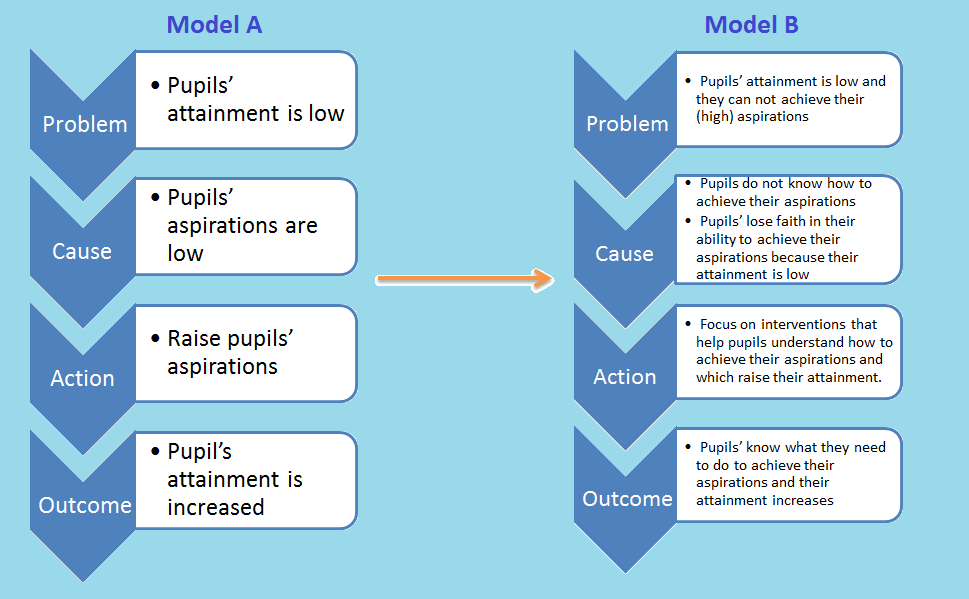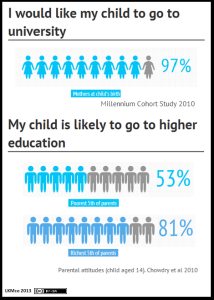Educational Aspirations and Parental Engagement
by Loic Menzies
8th February 2013
Parental engagement
We should engage with parents to help them understand what their children’s aspirations involve and what will help achieve them.
Engagement is most effective when:
- It is collaborative, builds strong relationships and focuses on learning.
- Schools meet parents on their own terms by tapping into their needs and interests, creating environments that feel comfortable to them and involving other members of their community.
Where other interventions are used, they should focus on keeping pupils’ aspirations on track rather than just ‘inspiring’ them. Such strategies might include :
- High-quality careers advice, work experience and work-related learning.
- Skilled, learning-focused mentoring.
I have also written a blog for The New Statesman cautioning against using the myth of “poverty of aspirations” to explain away poverty.




Comments